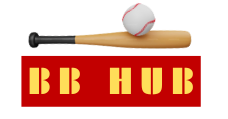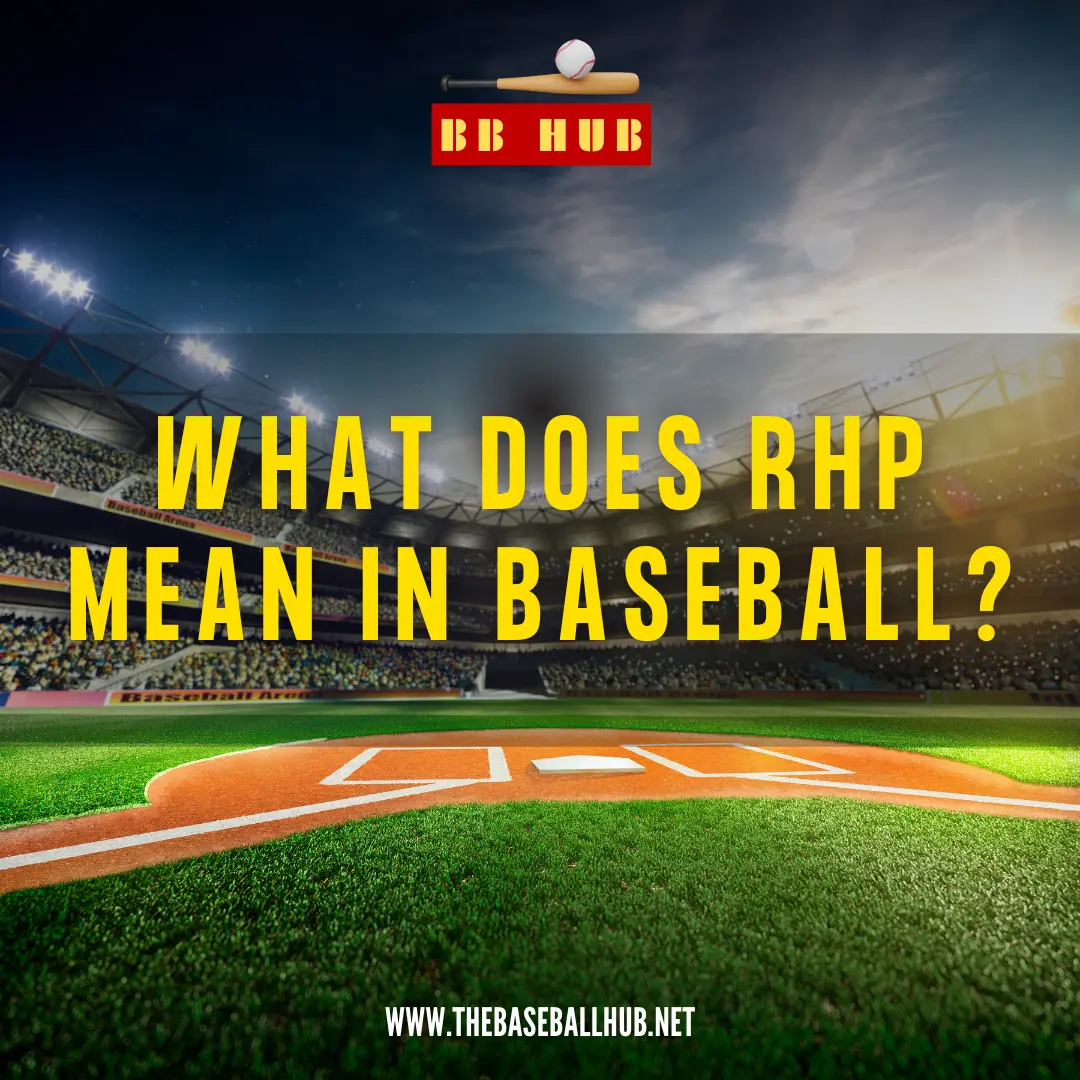So, What does RHP Mean in Baseball? When it comes to the game of baseball, the term “RHP” is often heard in the context of pitching. But what exactly does RHP mean, and why are Right-Handed Pitchers so crucial in the world of America’s favorite pastime?
In this article, we will delve into the world of RHPs, exploring their role, mechanics, importance, and impact on the game. So, let’s step onto the mound and discover the intriguing world of right-handed pitchers in baseball.
The Role of a Right-Handed Pitcher
In baseball, a Right-Handed Pitcher, often abbreviated as RHP, plays a pivotal role as one of the key defensive positions. RHPs are responsible for delivering pitches to the batter with the goal of striking them out, inducing ground balls, or pop-ups. Their precise throws and strategic placement of pitches can make or break a game.
Pitching Mechanics of RHPs
To be an effective RHP, one must master the intricate mechanics of pitching. This involves a seamless wind-up, proper grip on the baseball, and precise release point. RHPs employ a variety of pitches, each with its unique characteristics, to keep batters guessing and off-balance.
Types of Pitches Thrown by RHPs
RHPs are known for their versatility in pitch selection. They commonly throw fastballs, curveballs, sliders, change-ups, and sinkers. The ability to mix these pitches and vary their speed and location is what makes RHPs so challenging for batters to face.
The Importance of RHPs in Baseball
Right-Handed Pitchers are an essential part of any baseball team. They provide balance to the pitching rotation, with the ability to neutralize both right and left-handed batters. Their role becomes especially critical in high-pressure situations, like the playoffs and World Series.
Notable RHPs in Baseball History
Throughout the history of baseball, there have been legendary RHPs who have left an indelible mark on the game. Names like Nolan Ryan, Bob Gibson, and Walter Johnson are celebrated for their incredible achievements and contributions to the sport.
RHPs in Today’s Major League Baseball
The tradition of RHP excellence continues in today’s Major League Baseball. Pitchers like Justin Verlander, Jacob deGrom, and Max Scherzer are dominating the mound and setting records that will be remembered for generations to come.
Challenges Faced by RHPs
RHPs face numerous challenges, including the physical toll of pitching, the mental aspect of the game, and the pressure of performing consistently. Injuries and setbacks are common, but the best RHPs find ways to overcome these obstacles.
How to Become an Effective RHP
For aspiring RHPs, it’s essential to focus on honing their skills, developing a wide array of pitches, and maintaining peak physical condition. Hard work and dedication are key to success in this demanding position.
Training and Conditioning for RHPs
RHPs engage in rigorous training and conditioning programs to build strength, endurance, and agility. They also work with coaches and mentors to refine their technique and enhance their performance.
RHPs in the Bullpen
In addition to starting pitchers, RHPs play a crucial role in the bullpen, where they are often called upon to close out games or pitch in relief. Their ability to handle high-stress situations is a testament to their skill and mental fortitude.
RHP vs. LHP (Left-Handed Pitchers)
While RHPs are dominant in the game, it’s important to recognize the role of Left-Handed Pitchers (LHPs) who bring their unique advantages to the field. The contrast between RHPs and LHPs adds depth to the game of baseball.
Users Also Read: What Hide was First Used to Cover Baseballs in 1975
Factors Effecting RHP
1. Wind-Up and Delivery
The first step in understanding RHP performance is the mechanics of pitching. A smooth wind-up and precise delivery are vital. It’s all about generating power and accuracy while minimizing the risk of injury.
2. Pitch Selection
Choosing the right pitch for the situation is a critical aspect of an RHP’s performance. Factors like the batter’s strengths and weaknesses, count, and game situation all come into play.
3. Strength and Conditioning
An RHP’s physical condition is pivotal. A well-conditioned pitcher can throw harder and more consistently. Strength and conditioning programs are designed to improve performance and reduce the risk of injury.
4. Flexibility and Range of Motion
Flexibility and range of motion are essential for pitchers. A wide range of motion enables a pitcher to execute different pitches effectively.
5. Confidence and Focus
Pitching is as much a mental game as it is physical. Confidence and unwavering focus can make a significant difference on the mound.
6. Handling Pressure
Handling pressure situations, such as close games or critical innings, is crucial for an RHP’s performance.
7. Pitch Sequencing
The art of pitch sequencing involves setting up hitters with a series of pitches. It requires strategy and a deep understanding of the game.
8. Fielding Skills
An RHP’s ability to field their position is often overlooked but can be a game-changer. Quick reactions and sharp fielding skills are essential.
9. Glove and Footwear
Having the right equipment, including gloves and footwear, is vital for comfort and performance.
10. Grip Variations
RHPs often use different grips to create unique pitches. Perfecting these grips is an ongoing process.
11. Injury Management
Injuries can be a significant setback for RHPs. Effective injury management and rehabilitation are crucial for a quick return to peak performance.
12. Rest and Recovery
Proper rest and recovery between games and practices are essential for maintaining peak performance.
13. Coaching and Guidance
Coaches play a significant role in shaping an RHP’s performance. Their guidance and feedback can be invaluable.
14. Team Support
Having a supportive team and a positive environment can boost an RHP’s confidence and performance.
Famous RHP Records and Achievements
Throughout baseball history, RHPs have achieved remarkable records and milestones. Records for strikeouts, no-hitters, and perfect games stand as testaments to their extraordinary talents.
Conclusion
In conclusion, RHP in baseball stands for Right-Handed Pitcher, a position with a rich history and a bright future. These athletes are the unsung heroes of the sport, consistently delivering outstanding performances and ensuring the game’s excitement and unpredictability.
To learn more about the fascinating world of baseball and the role of RHPs, be sure to follow our updates and news on the latest happenings in America’s favorite pastime.
Frequently Asked Questions
What is the meaning of RHP in baseball?
In a baseball game, term ‘RHP’ is commonly used which stands for Right-Handed Pitcher.
What is the key role of an RHP in baseball?
RHP, or Right-Handed Pitchers, are responsible for delivering pitches to batters with the aim of striking them out or inducing ground balls or pop-ups.
Who are some famous RHPs in baseball history?
Legendary RHPs include Nolan Ryan, Bob Gibson, and Walter Johnson, known for their remarkable achievements in the sport.
How do RHPs train and condition themselves for the game?
RHPs engage in rigorous training and conditioning programs to build strength, agility, and refine their pitching techniques.
What is the difference between RHPs and LHPs in baseball?
While RHPs are right-handed pitchers, LHPs are left-handed pitchers, each offering a unique perspective and approach to the game.
What is the significance of RHP records in baseball?
Records held by RHPs, such as strikeouts, no-hitters, and perfect games, are a testament to their exceptional talents and contributions to the sport.

